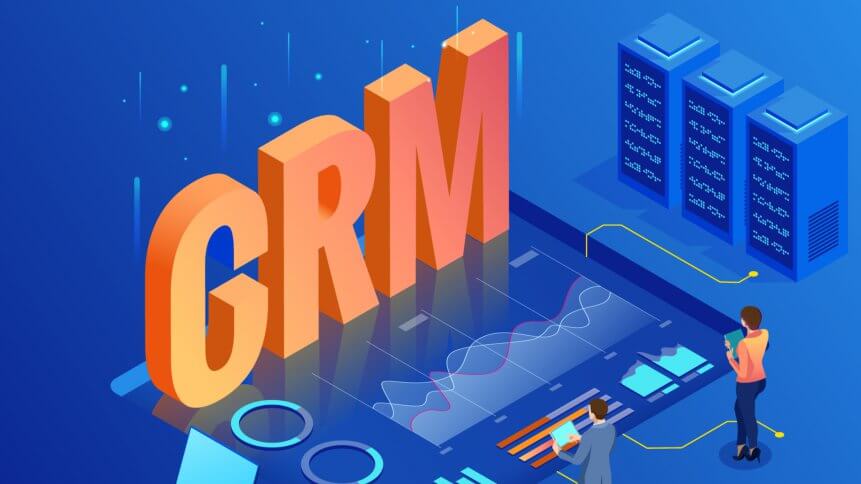CRM tools – the solution to wrangling customer 2.0?

- Buyers are increasingly informed and socially engaged, making customer experience more vital than ever before
- CRM software can add value throughout the customer experience, and make life easier for your business
- Set yourself apart with an optimized CRM to understand customer needs more comprehensively and create loyalty as a result
Spurred on by ever-evolving technology and digital transformation, customers are more informed and socially-engaged than ever before. They’re increasingly tech savvy, prone to pickiness, and sometimes a challenge to pin down. Ladies and gentlemen, we give you ‘Customer 2.0’.
What do all of the above traits effectively channel into? What does the modern-day customer really value? The answer is an experience. They want to be wowed, wooed and valued. So pertinent is this trend that 86% of buyers are willing to pay more for a great customer experience.
When it comes to building business relationships, then, customer experience is fast usurping the likes of product and price. To develop and maintain an excellent customer experience, Customer Relationship Management (CRM) systems can be a solid place to start.
Recent research found that 93% of buyers begin their buying process with an internet search. As a result, they can choose products, services and even people to do business with, all without any direct interaction. By the time you come into contact with them, there’s no way of knowing just how much they already know about you; it can therefore be difficult to really shape that conversation in a way that’s going to show them true value.
So, how can you adjust to meet the expectations of such a switched on, demanding customer?
How businesses are responding
A positive is that there are ways and means of addressing customers’ needs, and many businesses are stepping up to the plate to make this a reality. For example, 76% of customer management executives and leaders believe customer experience is a high priority to their business.
What’s more, according to a Gartner survey, 89% of companies are determined to compete mostly on the basis of customer experience. It’s pretty evident that the experience customers are getting is something that carries great weight within businesses.
Perhaps problematically, a natural extension of this trend is that you’ve now got a smorgasbord of businesses focusing on customer experience, and the customer is a little spoilt for choice. So how do you intend to stand out? How are you going to set your business – and the experience customers have when buying from it/interacting with it/reviewing the value of it – apart from competitors? How are you going to review, predict and address customers’ needs on an ongoing basis?
Where a CRM can help your customer experience cause
With customer experience being a brand differentiator, CRM software can help set you apart, giving you a more comprehensive view of your customer. To create highly customized offers, CRM’s can help in the following ways:
1. By maintaining and propelling meaningful, ongoing communication. A well organized CRM system contains a vast pool of info about your customers and how they interact with your business – including past activities, conversations and purchases. You can hence keep existing customers and prospects updated with company news, offers, sales campaigns, or other initiatives. CRM software also allows you to segment the customers and address the right audience with the right message, instead of uniform, alienating offerings.
This kind of personalized approach is key to creating personal relationships, and makes the whole experience more enjoyable for both parties. A CRM has the capacity to capture all conversations across channels; this info can be accessed by all within your business.
2. By listening to needs. Customer 2.0 is quite the talkative type. CRM’s can help with the act of social listening; through them, you can distribute surveys and gauge what customers are after and improvements they sense space for in their current solutions. What better way to keep them happy?
Through a CRM, you can also offer customers the chance to sign up for updates or calls with people from your business. You’ll have better knowledge of their preferences this way.
3. By providing support how and when customers need it. Modern customers tend to prefer online communication. A CRM offers that in a big way. You can automate receipt responses, keep track of enquiries, point to FAQs or knowledge bases. After all, what good customer experience includes being ignored or perpetually delayed? None. The answer is none.
A little alarmingly, one survey found that 62% of respondent companies didn’t respond to customer support emails at all, and that average response times lingered near 12 hours. A CRM can expedite your ability to respond, in a tone of voice that’s unique to you, and that customers would expect in response to that particular query.
CRM as a loyalty management tool
This is like the article’s bonus round, but it’s no afterthought. What comes from a strong customer experience? Loyalty. By making it easy and rewarding for your customers to work with you, you drastically increase the chances of them coming back for more.
There’s a pretty clear case for the use of a CRM. In a tech-heavy world, customers are rightly demanding a new, sustained level of attention. They expect you to do business with them on their terms. To follow up on leads and opportunities in a timely, calculated and genuinely thoughtful manner – it’s pretty tricky to look beyond a comprehensive CRM.
If you’ve already got one in place, work on its optimization. Consult the points above. Consider the funnel of activity that a customer engages with from the start of your relationship onwards. Chances are a CRM can add value at a number of points in this journey, and there are ample choices out there.








